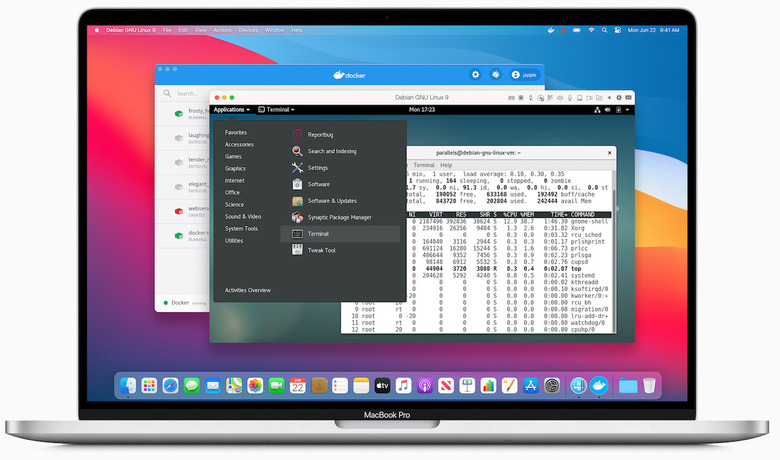Apple Officially Announces That It's Ditching Intel For Its Own ARM-Based Chips
- Apple is officially ditching Intel and new Macs will house ARM-based chips
- The first ARM-based Macs will arrive by the end of the year.
- macOS will continue to support Intel processors for years to come, according to Tim Cook.
After announcing a number of changes to iOS, watchOS, and macOS, Apple during its WWDC keynote also delivered what it categorized as a "historic announcement." Hardly a secret at this point, Tim Cook today said that Apple will officially be transitioning away from Intel. Instead, future Macs will boast ARM-based designs.
After covering the performance improvements Apple has made to its line of A-x processors, Apple executive Johnny Srouji said that Apple is eager to bring their decade of chip expertise to the Mac. Srouji said that Apple-designed chips will be able to maximize performance while also being energy efficient.
The new Apple designed silicon will be designed specifically for the Mac and will allow Apple to bring much better products to market, Srouji explained.
Notably, developers will be able to deliver a single binary capable of working on both Intel-based Macs and Apple silicon. Further, Apple says that developers will be able to tweak their apps to run on Apple silicon right in xCode and that the entire process should only take a few days.
Apple's press release reads in part:
Developers can now get started updating their apps to take advantage of the advanced capabilities of Apple silicon in the Mac. This transition will also establish a common architecture across all Apple products, making it far easier for developers to write and optimize their apps for the entire ecosystem.
Apple today also introduced macOS Big Sur, the next major release of macOS, which delivers its biggest update in more than a decade and includes technologies that will ensure a smooth and seamless transition to Apple silicon. Developers can easily convert their existing apps to run on Apple silicon, taking advantage of its powerful technologies and performance. And for the first time, developers can make their iOS and iPadOS apps available on the Mac without any modifications.
Alongside the transition, Apple notes that MacOS Big Sur will include Rosetta 2 so that existing Mac apps can run on new Macs with Apple silicon. Rosetta 2 will also be able to translate apps when you install them so that they will launch immediately. Apple adds that Rosetta 2 is also capable of translating code on the fly when needed.
Apple adds:
Apple is designing a family of SoCs for the Mac. This will give the Mac industry-leading performance per watt and higher performance GPUs — enabling app developers to write even more powerful pro apps and high-end games. And access to technologies such as the Neural Engine will make the Mac an amazing platform for developers to use machine learning. This will also create a common architecture across all Apple products, making it far easier for developers to write and optimize software for the entire Apple ecosystem.
As you might expect, Apple has already updated a number of its own apps to run on its custom-designed silicon. The company also touted that apps from the likes of Microsoft and Adobe are already running on ARM-based Macs.
Apple is launching a Quick Start program that will enable developers to make Universal apps quickly. As part of the program, developers will have access to documentation, sample code, access to labs around the world, and more. What's more, developers can also get a souped up Mac Mini to help them get started. The Quick Start program is slated to open up this week.
Apple details the program as follows:
To help developers get started with Apple silicon, Apple is also launching the Universal App Quick Start Program, which provides access to documentation, forums support, beta versions of macOS Big Sur and Xcode 12, and the limited use of a Developer Transition Kit (DTK), a Mac development system based on Apple's A12Z Bionic System on a Chip (SoC).
According to Tim Cook, Apple will release its first ARM-based Macs later this year. Incidentally, the full transition to ARM-based Macs will take about two years. That said, Cook said that future iterations of macOS will support Intel processors for years to come.
Developing...
